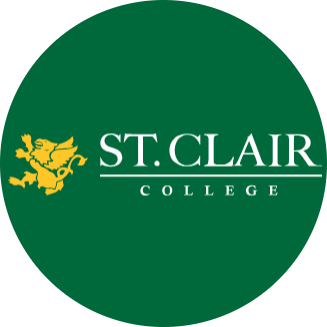• Study in Canada
New Rules & Regulations in Canada for International Students
6376 Reads
3 min Read
- Canada has implemented new regulations to control the intake of international students and enhance its immigration system.
- Key measures implemented include the study permit cap, attestation letter requirement, and adjusted work limits for international students.
- The changes aim to better align international student enrollment with labor market needs and safeguard the well-being of international students in Canada.
- The government is committed to upholding the integrity of the immigration system, supporting global students, and securing the sustainability of Canada's education system.
Canada has always been a favoured choice among students worldwide who are looking for an excellent education and a friendly atmosphere. However, with new regulations in Canada affecting international students, understanding the changing landscape has never been more important. These adjustments are set to significantly impact the experience and opportunities available to international students studying in Canada.
New Rules & Regulations for International Students in Canada 2024
Temporary Study Permit Cap in Canada
- This decision, aimed at stabilizing new growth, will be effective for two years starting in 2024.
- The cap will lead to around 360,000 approved study permits, a 35% drop from 2023.
- This measure targets the rapid increase in international student numbers, especially in provinces with the highest growth rates.
- The caps won't apply to international students pursuing master's or doctoral degrees, nor will they affect existing international students renewing their study permits. Due to a decrease in the number of study permits available, there has been a surge in competition for admission to Canadian Designated Learning Institutions (DLIs), especially in Ontario, British Columbia, and Nova Scotia.
- Starting January 22, 2024, every study permit application submitted will require an attestation letter issued by a province or territory, indicating a more rigorous application process.
Due to the temporary cap on Study permits, the Canadian government aims to establish a Trusted Institutions Framework to promote high educational standards and support international students through new regulations. The cap on study permits supports international students academically and in other areas for a sustainable future.
Increased Requirement of Financial Resources
| New Financial Requirements | Regional Variations |
| Starting January 1, 2024, the Canadian government will raise the financial requirement for study permit applicants from $10,000 to $20,635. This change aims to better prepare international students for the cost of living in Canada. | The province determines the financial requirements for studying in Quebec. International students in Quebec's learning institutions must show a minimum proof of financial support of $15,078, or $7,541 for those under 18 years. |
| The threshold is raised because of the increasing living expenses, which have not been accurately measured since the 2000s. The new requirement will be adjusted annually based on updates to the low-income cut-off (LICO) by Statistics Canada. | The province periodically reviews these thresholds to reflect the actual cost of living, ensuring international students have enough funds to stay in Canada. |
Changes to Post-Graduation Work Permit (PGWP) Program
Eligibility Criteria for PGWP in Canada
Starting September 2024, the eligibility criteria for the Post-Graduation Work Permit in Canada will change, specifically affecting programs at certain Designated Learning Institutions in Quebec. Check out the eligibility criteria for PGWP in Canada:
- Students should verify their DLI's status on the official list to ensure their program qualifies for PGWP. Curriculum licensing agreements between public and private institutions will impact PGWP eligibility.
- With a few exceptions, programs delivered by private colleges on behalf of public colleges may not be eligible. However, students starting before May 15, 2024, in a program within the same province may still qualify for PGWP if they meet all other requirements.
Duration & Conditions for PGWP in Canada
Uncover the details of the PGWP, such as duration and conditions, essential for current international students, recent graduates, and those considering studying in Canada.
- The validity of a Canadian Post-Graduation Work Permit (PGWP) can range from 8 months to a maximum of 3 years, depending on the length of the completed study program.'
- Master's degree graduates now have a three-year work permit, allowing them more time to gain Canadian work experience and increase their chances of getting PR.
- The PGWP is an open work permit allowing holders to work in Canada for any employer without needing a job offer
- To qualify for a PGWP, students need to complete an 8-month program at an eligible institution and maintain full-time student status.
Extended Part-Time Working Hours in Canada
Details of the Extension
The Canadian government has temporarily increased off-campus work hours for certain international students. If IRCC receives an international student's application for a study permit extension after December 7, 2023, they can work more than 20 hours per week until the expiry date of their extended study permit or until April 30, 2024, whichever is earlier. Eligible students include those who are:
- Full-time study permit holders at a Designated Learning Institution (DLI), or part-time if it's their final academic semester.
- Students with expired study permits who are still maintaining their status can continue studying full-time at a designated learning institution (DLI) or part-time in their final semester.
- Approved for a study permit but has not yet arrived in Canada.
- To qualify, students in Canada or who re-entered Canada by April 30, 2024, must meet specific conditions on their study permit for off-campus work.
Implications for Students
The extension of working hours for international students carries significant implications.
- Starting in Fall 2024, students can work up to 24 hours per week during term time.
- The adjustment from 20 to 24 hours per week allows students to work three shifts instead of two, potentially increasing their income.
- This change is helpful for students in provinces like Ontario, where a minimum-wage job could earn them around $2000 extra income during the school year.
Spouse Work Permits
- Understanding these changes is very important for international students who plan to study in Canada, especially for those who want to know if their spouses are eligible for work permits. This greatly impacts the opportunities available to their families while they are studying in Canada.
- Shift from Open to Closed Work Permits
- Recent updates from Immigration, Refugees and Citizenship Canada (IRCC) have changed eligibility requirements for Spousal Open Work Permits (SOWP).
- Open work permits for spouses of international students will now be limited to those in master's and doctoral programs. This change is intended to address system challenges and align the provision for spouses with Canada's academic competitiveness and economic needs.
- The New Regulations in Canada specify that spouses of students in certain professional degree programs at universities in Canada, such as Doctor of Dental Surgery, Bachelor of Law, Doctor of Medicine, and several others, will also be eligible for SOWP.
- These changes aim to address the system's volume and integrity challenges, ensuring that the provision for spouses aligns more closely with Canada's academic competitiveness and economic needs.
How to Apply for Post Graduation Work Permit in Canada?
| Eligibility Documentation | Applicants must provide documentation proving their relationship to the student and their enrollment in a qualifying program. This includes a valid Letter of Acceptance from a Designated Learning Institution, proof of enrollment, or transcripts from the student's current program. |
| Conditions for Approval | The student must have a valid study permit, be eligible for a PGWP, and be enrolled full-time at a recognized institution, including public post-secondary schools, private college-level schools in Quebec, and Canadian private schools authorized to grant degrees. |
| Alternative Options for Ineligible Spouses | Spouses and partners who are ineligible under the new SOWP criteria can apply for other types of work permits or a visitor visa. Visitor visa holders in Canada are prohibited from working. |
Conclusion
FAQ
Get great articles direct to your inbox
The latest news, articles, and resources, sent straight to your inbox every month.
Popular Universities to Study Abroad
World class education waiting for you.

University of Calgary (Continuing Education) - Downtown Campus
Alberta, Canada • 11 Programmes
Tuition Fee : CAD 0-0 / year

St. Clair College - Chatham Campus
Ontario, Canada • 11 Programmes
Tuition Fee : CAD 11500-15500 / year

University of Massachusetts Lowell
Massachusetts, USA • 145 Programmes
Tuition Fee : USD 36000-37000 / year

Georgian College - Barrie Campus
Ontario, Canada • 108 Programmes
Tuition Fee : CAD 14000-26000 / year

Simon Fraser University - Burnaby Campus
British Columbia, Canada • 23 Programmes
Tuition Fee : CAD 35000-36000 / year

Study Group - University of Surrey International Study Centre
England, UK • 169 Programmes
Tuition Fee : GBP 4500-18000 / year

Medicine Hat College - Brooks Campus
Alberta, Canada • 2 Programmes
Tuition Fee : CAD 21500-22000 / year

Liverpool John Moores University - Mount Pleasant Campus
England, UK • 122 Programmes
Tuition Fee : GBP 16000-17000 / year
Popular English Language Proficiency Exams
Blogs and Articles
Curated content to keep you updated on the latest education trends, news and more.
ACT vs. SAT: Which One to Choose?
Updated on • Apr 12,2025 05:40 PM IST • Study Abroad
Updated on • Apr 11,2025 05:53 PM IST • IELTS
Backlog Certificate: A Complete Guide
Updated on • Apr 11,2025 01:47 PM IST • Study Abroad Guidance
PTE Score Chart 2025: PTE Exam Scoring System & Calculation
Updated on • Apr 09,2025 05:37 PM IST • PTE
Master's in Computer Science in the USA
Updated on • Apr 08,2025 05:59 PM IST • USA
Top Trending MBA Specialisations in 2025
Updated on • Apr 08,2025 04:47 PM IST • Study Abroad
Describe Your Hometown IELTS Speaking Part 1 Topic
Updated on • Apr 07,2025 05:50 PM IST • IELTS
How to Get a Job in USA in 2025
Updated on • Apr 07,2025 03:19 PM IST • USA
Highest Paying Jobs in the World
Updated on • Apr 01,2025 05:31 PM IST • Study Abroad
Student Life in Ireland in 2025
Updated on • Mar 29,2025 05:50 PM IST • Ireland
Top Public Universities in Germany
Updated on • Mar 26,2025 04:33 PM IST • Germany
Top Universities for Masters in Ireland in 2025
Updated on • Mar 25,2025 04:36 PM IST • Ireland
Cost of Living in Singapore for Indian Students in 2025
Updated on • Mar 22,2025 11:57 AM IST • Singapore
PTE vs IELTS : Know the Difference and Which is Easier?
Updated on • Mar 21,2025 03:38 PM IST • IELTS
Updated on • Mar 20,2025 10:19 AM IST • Germany
Updated on • Mar 12,2025 11:20 AM IST • Ireland
Updated on • Mar 11,2025 01:18 PM IST • USA
Best Countries to Study Abroad for Indian Students in 2025
Updated on • Mar 08,2025 01:24 PM IST • Study Abroad
Updated on • Mar 05,2025 12:19 PM IST • UK
Fastest Growing Job Sectors in Germany in 2025
Updated on • Feb 28,2025 04:04 PM IST • Germany
Related Blogs and Articles
A little effort to provide an authentic and reliable content for keen readers!!
Updated on • 25-01-2025 • Study in Canada
Updated on • 24-01-2025 • Study in Canada
Canada Student Visa Interview Questions
Updated on • 23-01-2025 • Study in Canada
Updated on • 15-01-2025 • Study in Canada
September/Fall Intake Canada 2025: Timeline, Universities & Admission Requirements
Updated on • 03-01-2025 • Study in Canada
Updated on • 02-01-2025 • Study in Canada
Life in Canada as an Indian Student
Updated on • 26-12-2024 • Study in Canada
Timeline for Winter (January) Intake in Canada 2025
Updated on • 21-12-2024 • Study in Canada
Updated on • 05-12-2024 • Study in Canada
Best Cities to Study in Canada
Updated on • 21-11-2024 • Study in Canada
Bachelor of Architecture in Canada
Updated on • 13-11-2024 • Study in Canada
Job Opportunities in Canada for Indians: Salaries, Best Job Sites & More
Updated on • 09-10-2024 • Study in Canada
Canada Study Visa - Fee, Requirements, How to Apply & More
Updated on • 05-10-2024 • Study in Canada
Study intakes in Canada - Fall, Winter & Summer
Updated on • 03-10-2024 • Study in Canada
Letter of Recommendation (LOR) for Canada: University Requirements, Sample and Writing Tips
Updated on • 26-09-2024 • Study in Canada
Public Transportation in Canada for International students
Updated on • 29-08-2024 • Study in Canada
Healthcare in Canada for international students
Updated on • 27-08-2024 • Study in Canada
Courses in Canada for International Students
Updated on • 10-08-2024 • Study in Canada
Top PG diploma Colleges in Canada - Courses, Eligibility & More
Updated on • 06-08-2024 • Study in Canada
Pros & Cons of Studying in Canada
Updated on • 31-07-2024 • Study in Canada











